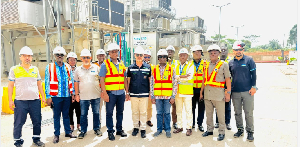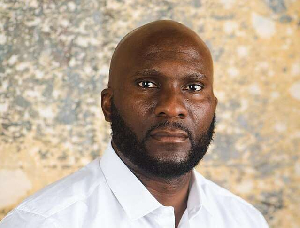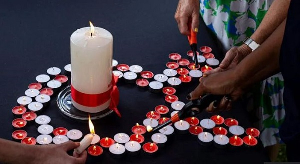As Third World leaders pleaded this week for big increases in Western development aid, US-based African businesswomen said governments could help by unshackling their Information and Communication Technology (ICT) sectors.
Awo Quaison-Sackey, president of AQ Solutions in New Haven, Connecticut, said most outsiders thought of Africa as a war zone or a drain for aid money, "but no-one sees the business opportunities."
In countries such as her native Ghana, women played a vital economic role that could be amplified by access to the Internet, Quaison-Sackey said.
Awo is a member of a committee set up this year by the UN development fund for women (UNIFEM) to bring together African entrepreneurs inside and outside Africa, as well as major firms such as Cisco Systems and UN bodies.
The other member are Rebecca Enonchong, the Cameroon-born founder and chief executive of Application Technologies, of Bethesda, Maryland, and Somali-born Yussur Abrar, who heads Warsun International Communications of Vienna, Virginia.
The three spoke in separate telephone interviews with AFP.
Africa has three telephone lines for 200 people, compared with 128 lines in the United States. The continent's 54 countries, home to 700 million people, have only one percent of the world's Internet users, and no more telephones between them than the 26 million citizens of Tokyo.
Enonchong, who runs a company with 100 employees and annual revenue of 20 million dollars, said she saw that as an advantage.
"There is no way we can catch up, but by using wireless and satellite technology, we can leapfrog," she said.
In the market at Cameroon's main city, Douala, a seller of local handicraft had scanned photos of his wares and asked for her advice about selling over the Internet, she said.
"There are so many things the developing world needs which the developed world does not see," Enonchong went on.
"If a farmer can go onto the Internet and find out how much his coffee is selling on world markets, he will be better able to negotiate with his buyers."
Enonchong said the committee gave companies such as hers "an opportunity to leverage the credibility and authority of the United Nations" in discussions with governments.
"We have the know-how, the experience and the ability, but it is much more difficult for us to interact with governments," she said.
Abrar said state monopolies acted as a brake on development, but that created opportunities for an international telecommunications carrier such as Warsun, which employs about 50 people at its headquarters.
"A lot of carriers don't consider Africa important enough for them to do business there," she said, but her firm deals with about 10 countries as diverse as Nigeria, Mozambique and the Democratic Republic of Congo.
AQ Solutions, an offshore software maintenance and development company which employs 25 people in Accra, has also exploited trans-Atlantic differences to attract clients including General Electric and Phoenix Insurance.
Wages in Ghana are between 25 and 60 percent below the United States, while the five-hour time difference with the US east coast in effect gives the client an extra working shift without paying overtime.
The company took off in late 1999 "when many companies found they were short of resources to tackle the Y2K Millennium bug threat," Quaison-Sackey said.
Asked how much impact it had had on the Ghanaian economy, she replied: "When you pay wages to one person, you raise the livelihood of up to 100 others; if we can reach our goal of employing 400 people in Ghana by 2005, we will benefit thousands."
General News of Tuesday, 26 March 2002
Source: AP












